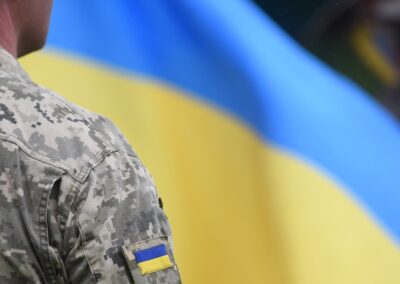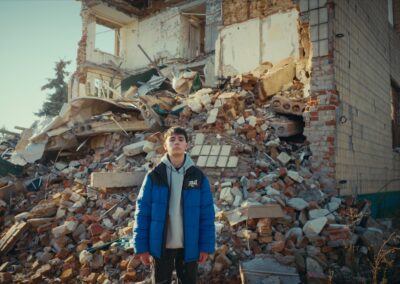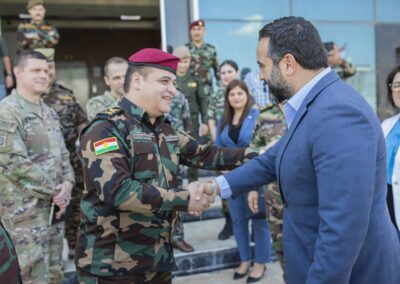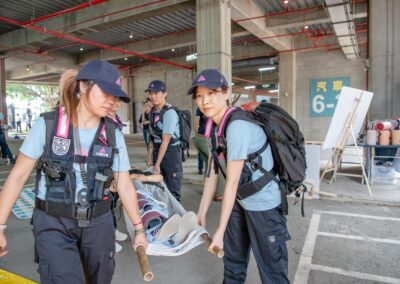In Syria, the road back to normal starts in the classroom

Education. That was the main takeaway from my January trip to Syria where I spent the better part of a week in Al-Hasakah, Deir-ez-Zor, and Raqqa provinces meeting with US troops, local representatives, and education officials. Throughout all my engagements, the message was strikingly consistent: getting kids back to school is key to long-term stability. One by one, local leaders, often in dramatic terms, stressed to me that Syria has no future without education. The soldiers I worked with echoed that sentiment. As one civil affairs officer explained, in military jargon, supporting the educational system is a primary line of effort because it is one of the most effective ways to generate long-term effects.
Driving between meetings and site visits, we criss-crossed a landscape with the appearance of a post-apocalyptic movie set: trails of thick black smoke hung ominously over the horizon – the byproduct of do-it-yourself roadside oil refining operations by desperate people using primitive techniques to eek out an existence; fields, littered with trash and waste, stretched as far as the eye can see; heaps of debris lay in random piles in and around small towns; storefronts, houses, bridges, schools, and hospitals – virtually every building and structure – were scarred by bullet holes and shrapnel; and makeshift shacks were everywhere. The signs of misery and collective trauma as the Syrian conflict unendingly drags into its seventh long year were unavoidable.
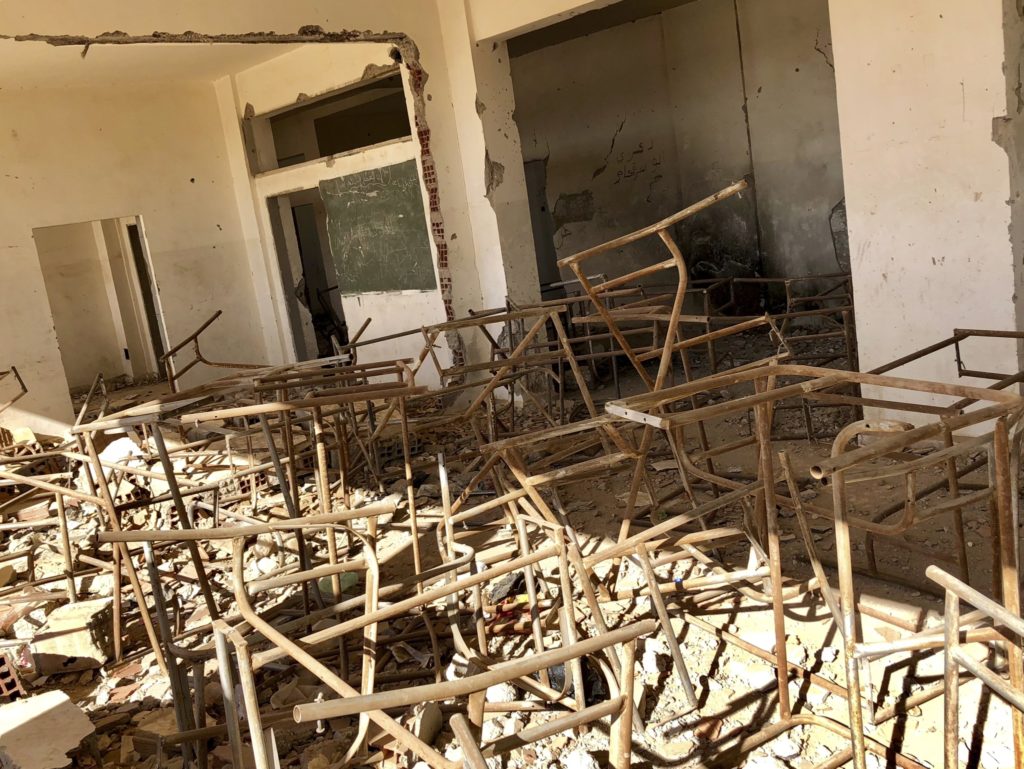 Destroyed classroom at Malhak al-Baroni all-girl school in Shaddadi, Syria.
Destroyed classroom at Malhak al-Baroni all-girl school in Shaddadi, Syria.
I was in 2018 Syria, but my mind kept yanking me back to 2004 Iraq. Juxtaposing the two scenarios showed the extraordinary paradigm shift US military has undergone over time. When I was deployed in Iraq back in 2004, our missions and thinking were framed by a kinetic conception of the conflict. Huge bases, large operations, unceasing patrols, and firefights all inevitably fostered an approach that placed the enemy at the center of a complex security matrix.
Fourteen years later, as I spent my days with the members of the US-led Coalition in key leader engagements – military parlance for meetings –assessing schools, meeting with public officials, and talking endlessly of non-kinetic lines of effort, it was evident that the population was at the center of the military effort, which is why I was in Syria in the first place. As a member of a non-governmental organization, I was exploring ways to deploy our capacity to advance stability in the beleaguered country. To that end, helping kids get back into classrooms was a good place to start.
Public education is a fundamental governmental responsibility, without which life in recovering communities cannot go back to normal. The ability of local governments to ensure access to education is not merely a technical enterprise, but rather a political and social endeavor with far-reaching consequences for the entire society, especially in economic and security domains. This is far from a uniquely military analysis. A 2005 Human Development Report by the United Nations Development Program draws a similar conclusion: “Education is one of the building blocks of human development. It is not just a basic right, but a foundation for progress in other areas, including health, nutrition, and the development of institutions and democracy. Conflict undermines this foundation and also contributes to the conditions that perpetuate violence.” Without people who can read or write, governments cannot function properly, and without effective governance, a society can quickly descend into chaos. More chaos in Syria is bad for everyone.
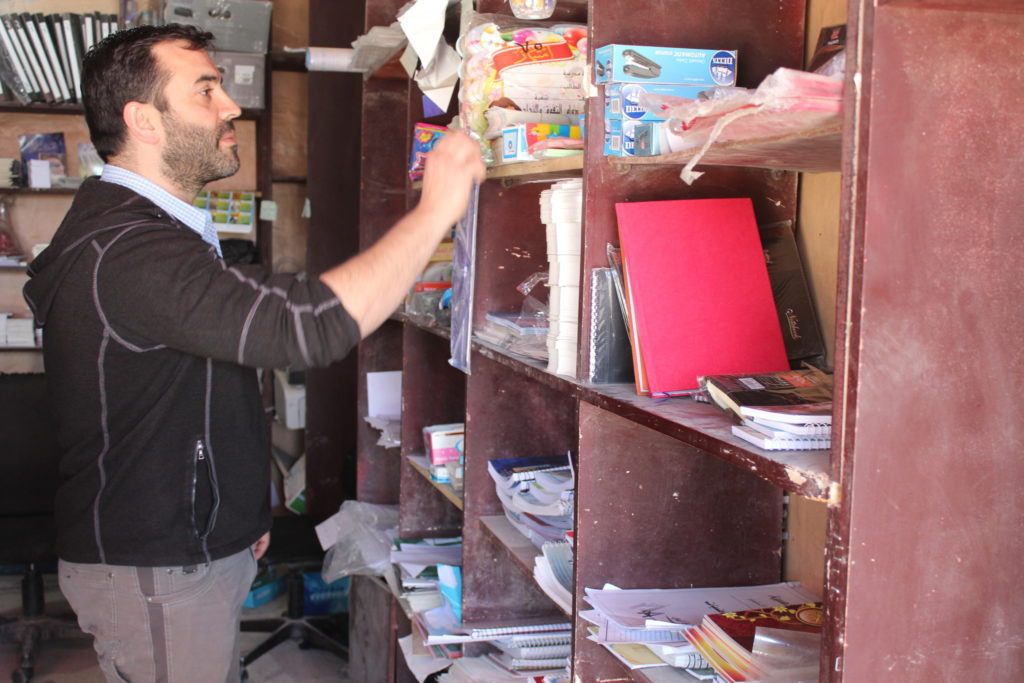
Here, I’m picking out school supplies for the Malhak al-Baroni all-girl school in Shaddadi, Syria.
However, studying, analyzing, and theorizing are mere abstractions. It is often the moments of uninhibited human interactions, far from conference rooms and command centers, that carve the most vivid impressions into one’s mind. For me, that moment was at Malhak al-Baroni, an all-girls school in the town of Shaddadi. As our vehicles pulled into the courtyard, the headmaster, sporting a scarlet jacket, came out to greet us and quickly invited us in.
To the right, the entire first floor of a building was in ruins. What was once a stairway had transformed into a ramp by layers of rubble, garbage, and metal frames that had held student desks together at one point in time. A flock of idle boys, captivated by our arrival, nonchalantly sat on the ledge of a large window frame. Behind them, more rubble, garbage, and metal frames were piled into what used to be classrooms. The crisp blue sky above us endued an element of absurd contradiction to the scene.
Inside, I squeezed myself into one of the student desks and began asking the headmaster questions. Some 165 girls attended the facility to learn Arabic, English, math, and other subjects. Gradually, in fits and starts, things were returning to normal. “What can I do to help?” He told me they had enough desks, but were desperate for whiteboards, chairs for the teachers who currently stand all day, and school supplies for low-income students. His earnest and precise appeal was impressive and moving. I asked more questions. He gave me more answers. This is one of the best parts of my job, making all the time on the road worthwhile. I was in a position to meaningfully help someone who genuinely cares, not just take notes and exchange platitudes.
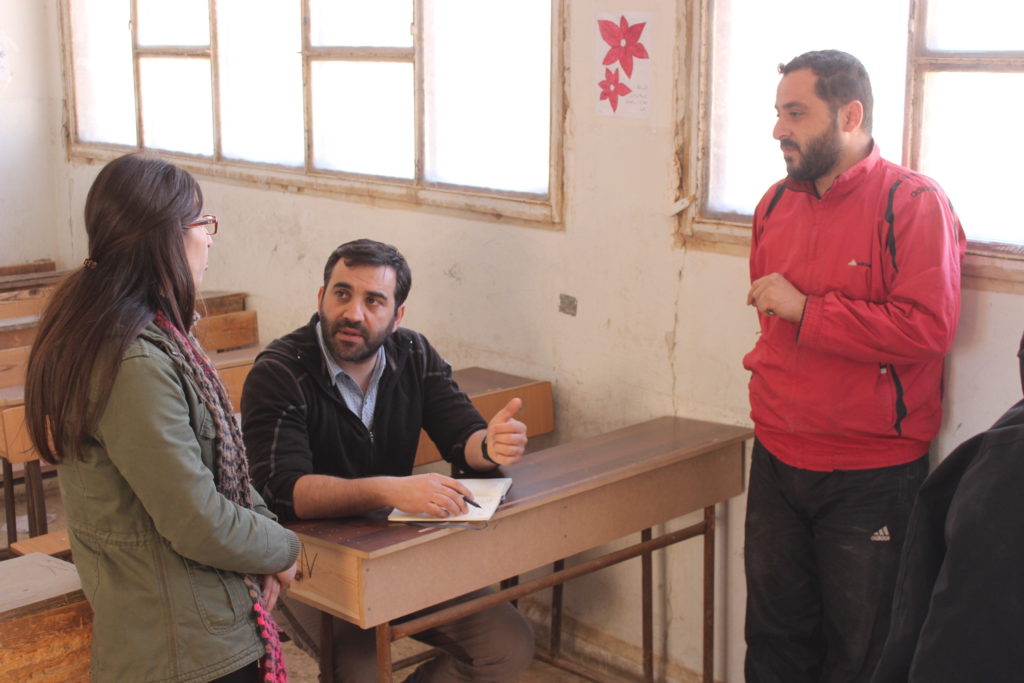
At the Malhak al-Baroni all-girl school in Shaddadi, I met with the headmaster (right) and local education officials to discuss ways that SoA can support ongoing education efforts, a top priority for US troops in the region.
Walking out of the classroom, a drawing, haphazardly taped to an otherwise blank wall, caught my eye. It was a simple sketch: a swan floating beneath a bright yellow sun. Across the top of the paper, the young gal had scribbled, “One who doesn’t feel silence can’t understood your speech.” The clumsy grammar made it all the more poignant.
On the way back to the base, I asked the soldiers I was traveling with to stop at a local store. There, I used some of SoA’s field funds to buy a batch of notebooks, pencils, and erasers for the school. Given the magnitude of destruction, the long and winding road to normalcy, and the inexplicable challenges that lay ahead for Syria, it was woefully inadequate. Still, it was the right thing to do. And, for me, the Malhak al-Baroni All-Girls School was a good start. We will do much more in the coming weeks.


